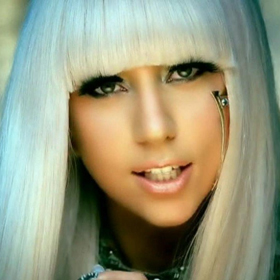Lady Gaga: Has the Backlash Begun?
In 2008, an Italian girl from Manhattan’s Upper West Side burst onto the pop music scene with her album The Fame. She called herself Lady Gaga, and she belted out soon-to-be hits like “Just Dance” and “Poker Face” with all her heart, catching the attention of critics and audiences around the world. Not only did she intrigue millions worldwide with her singing, but her appearance was also equally captivating; one day, she would wear a couture gown by Alexander McQueen complete with impossibly high heels, and the next day she would don a dress made of Kermit the Frog puppets. Suddenly, Gaga was everywhere; anywhere you turned, one of her songs could be heard, or she would be performing on TV. Her signature kookiness in her fashion was soon topped by the shock value of her performances. At the 2009 MTV Video Music Awards, she performed her hit “Paparazzi,” complete with fake blood and later hanging herself onstage. At the 2009 American Music Awards, Gaga performed the ballad “Speechless” on a grand piano set on fire. We never knew what Gaga would do next, but when she did it, we were in shock and awe every time.
These days, it appears that this shock and awe that Gaga sought to elicit from her fans has faded. While audiences once welcomed her crazy antics with open arms, her tricks are now met with mockery, yawns, and, in some cases, anger. Whether she wears raw meat as clothing, dyes her hair green, or performs with no hair at all, Gaga is starting to rub people the wrong way. After wearing what is known as the “meat dress” at the 2010 MTV VMAs, she sparked controversy from fashion critics and deeply angered animal rights organization PETA. In her music video for “Alejandro,” she dressed up as a nun and devoured rosary beads, which elicited a fury from religious groups. And then there are the accusations of Gaga ripping off Madonna. After debuting “Born This Way” at the 2010 Grammys, the Internet was buzzing with claims that the song was a knockoff of Madonna’s “Express Yourself.” Not only did the song receive Madonna comparisons, but it was also met with an overwhelmingly unanimous yawn in the press and online. Soon after, Gaga’s hit single and subsequent video “Judas” were compared to Madonna’s own religious phase. Whether or not Gaga’s nod to Madonna’s style was intentional or not, it has more likely hurt her than helped her in the press.
Gaga’s message that she so vehemently expresses that her fans should be themselves and not care what others think about them has also appeared to have backfired. It seems as if we can’t get through a day without hearing Gaga talk about how she felt like a “freak” or a “loser” in high school. She strives to be a “Mother Monster” to her fans, “Little Monsters,” whom she believes are fellow “freaks” who attend her shows to set themselves free. Maybe the “freak” label placed on them by an artist whom they admire turns off her biggest fans. I don’t consider myself a “freak,” but I admittedly like her music; I listen to it because it’s catchy and fun to sing and dance to. Songs like “The Edge of Glory” and “Bloody Mary” are, in my opinion, truly great pop songs that showcase Gaga’s natural talent as a singer and musician. But it’s songs like “Born This Way” and “Hair” that take on a more preachy tone, and her message of “Be yourself, no matter what others think” has most likely limited her audience. I think Gaga is better off doing what she does best: belting out hits that demonstrate her incredible singing chops and playing the piano like a true virtuoso, a talent that earned her the opportunity to perform with Sir Elton John at the Grammy Awards in 2010.
It is likely the tediousness of Gaga’s message and performances have led to the plummeting sales of Born This Way after the first week of release. Undoubtedly, the album had a hugely successful opening week, selling 1.1 million copies, thanks in great part to Amazon’s digital sale of the album for only 99 cents. But in the next week, album sales took a dramatic 84% drop, while digital copies decreased by a staggering 94%. And in the third week, Adele’s 21 stole Gaga’s number one spot on the Billboard 200 chart, an especially surprising turn of events since Adele is practically the 180-degree opposite of Gaga in music and style. Of course, the notorious “sophomore slump” is expected from all artists of Gaga’s talent and popularity; but in combination with overexposure in the media and listeners’ potential disapproval of her message, maybe Gaga’s less than impressive album sales lead to one possible explanation: fan and critic backlash.
Of course, given Gaga’s constant appearances in the media and seemingly unending tour, she likely won’t be going away for quite some time. But in fear of experiencing backlash, she should exercise her soulful vocals and show off her unmatchable piano-playing skills with original music that would not face comparison to other artists. In doing so, Gaga should have no problem holding on to her fans’ loyalty, and even catching the attention of new fans.
1 Comments
Leave a comment
RELATED ARTICLES
Get the most-revealing celebrity conversations with the uInterview podcast!








I think the biggest problem with Gaga and her losing fans and getting bad reviews from critics is not just because she's taken some cues from Madonna, but because we don't know anything about Gaga. I feel like everything about her is very superficial and her slogans feel fake because there is no depth to them.